Vercel Alternatives: 12 Hosting Platforms for Web Devs in 2026
If you’re on Vercel in 2026, you might want to make a move. With rising pricing concerns, commercial use restrictions and the need for more comprehensive development environments, developers are exploring robust alternatives that offer better value, flexibility and features for modern web applications.
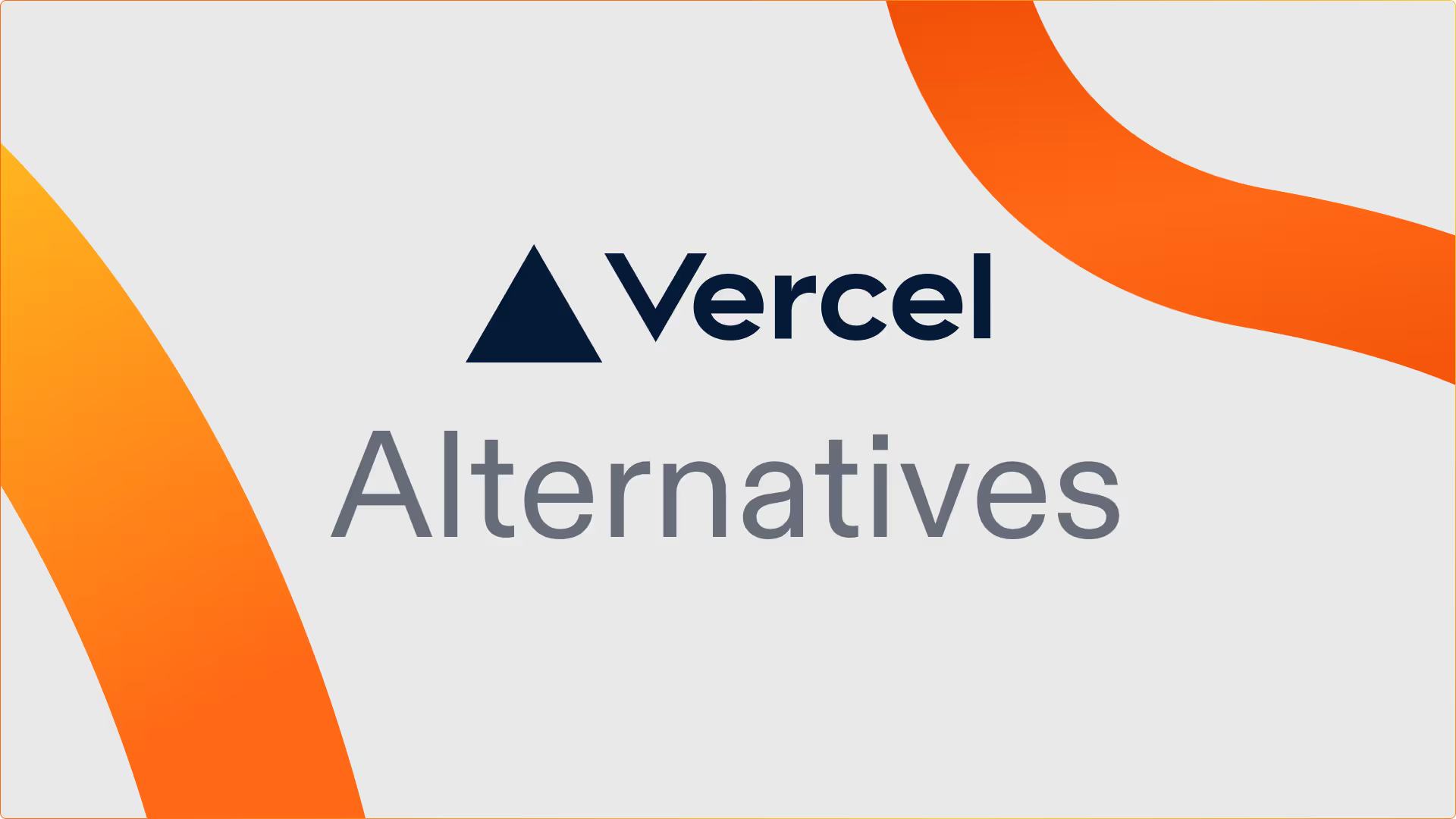
Why Developers Are Moving Away from Vercel
Vercel's limitations have prompted many teams to explore alternatives. The platform's usage-based pricing model can lead to unpredictable costs, particularly for traffic spikes, with Pro plans starting at $20 per user monthly plus bandwidth overages. The free tier prohibits commercial use (forcing even small revenue-generating projects onto paid plans), and Vercel's focus on frontend deployment limits backend support for persistent processes and databases.
Top Vercel Alternatives for Web Developers
Netlify - Best Overall JAMstack Alternative
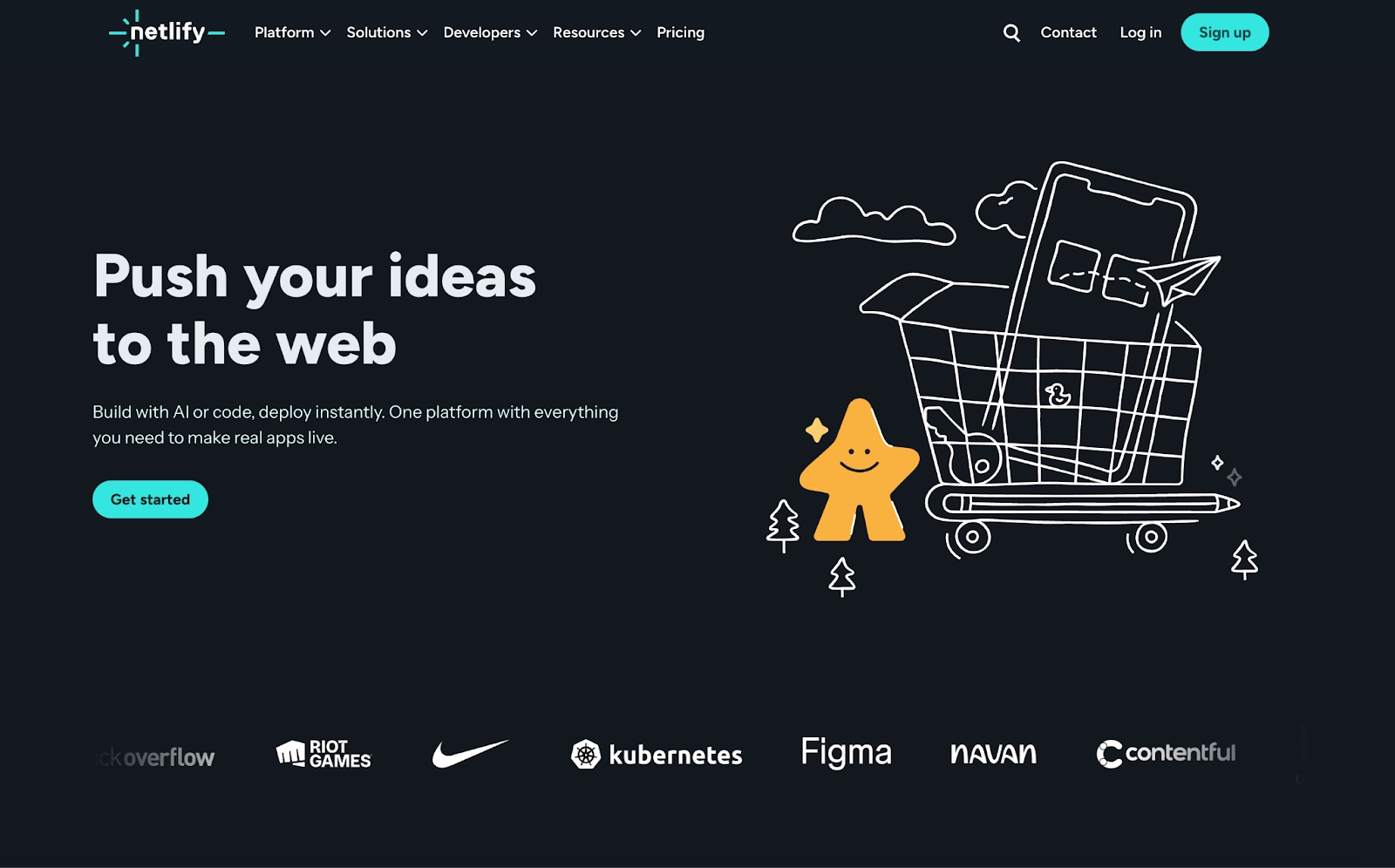
Netlify remains Vercel's strongest competitor for static sites and JAMstack applications, offering a more generous free tier and comprehensive feature set.
Key Features: Git-based continuous deployment with preview environments, built-in form handling, edge functions for dynamic content and extensive plugin ecosystem.
Pricing: Free: 100GB bandwidth (commercial use allowed), Pro: $19/month per user.
Best For: Static sites, JAMstack architecture, teams needing form handling and authentication built-in.
Railway - Best for Database-Heavy Applications
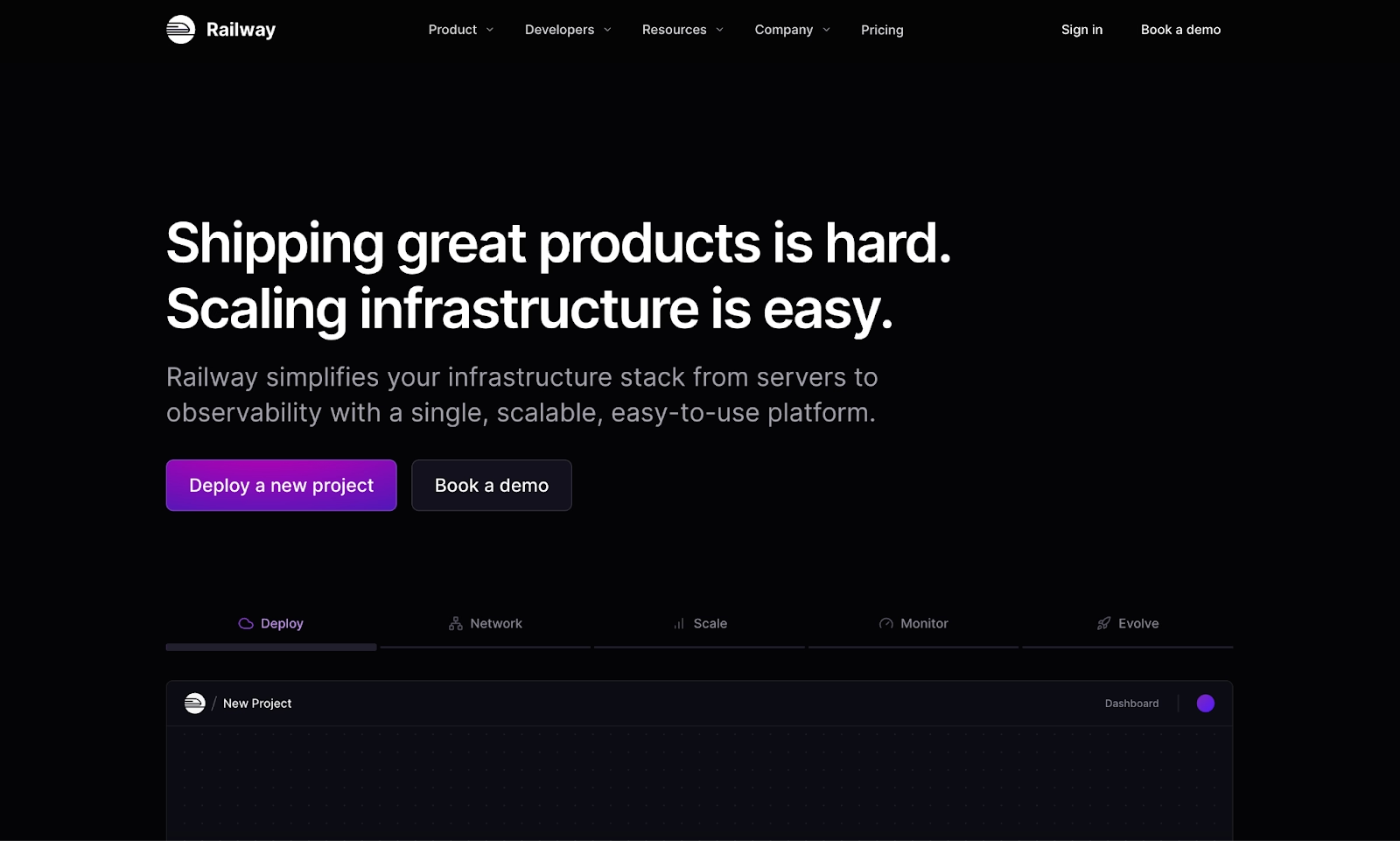
Railway excels at backend deployment with exceptional database management and transparent usage-based pricing.
Key Features: One-click database deployment (PostgreSQL, MySQL, MongoDB, Redis), private networking between services, scale-to-zero with transparent usage tracking.
Pricing: Hobby: $5/month (includes $5 usage credit), Pro: $20/month per seat.
Best For: Full-stack applications, developers wanting simple database integration, transparent cost management.
Render - Best for Traditional Web Apps
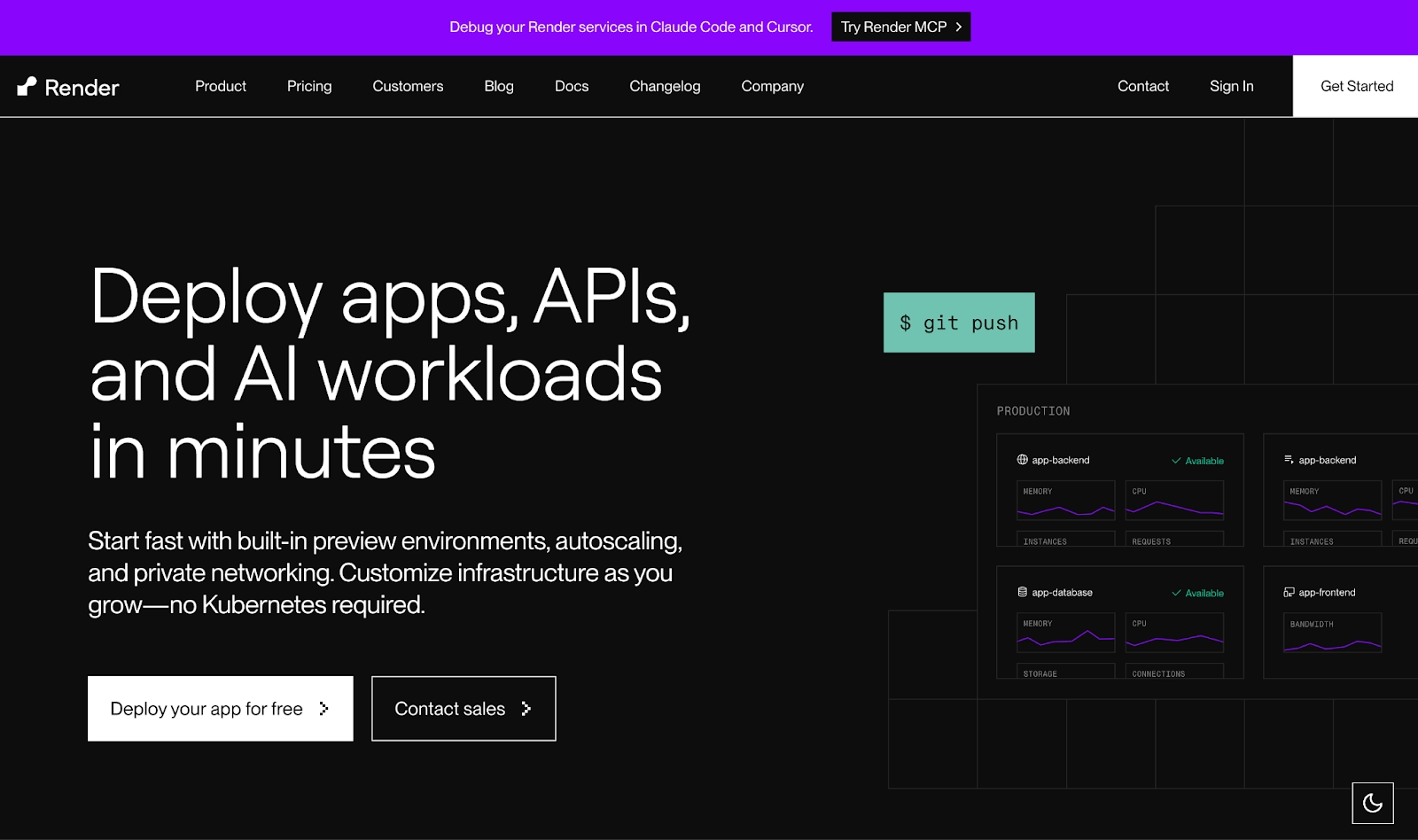
Render provides a modern Heroku alternative with better performance and pricing for traditional web applications.
Key Features: Web services with automatic scaling, managed PostgreSQL databases, background workers, cron jobs and Docker containers support.
Pricing: Free tier for static sites, Web services: $7/month, databases: $7/month.
Best For: Full-stack applications requiring persistent backend processes, teams migrating from Heroku.
Fly.io - Best for Global Edge Deployment
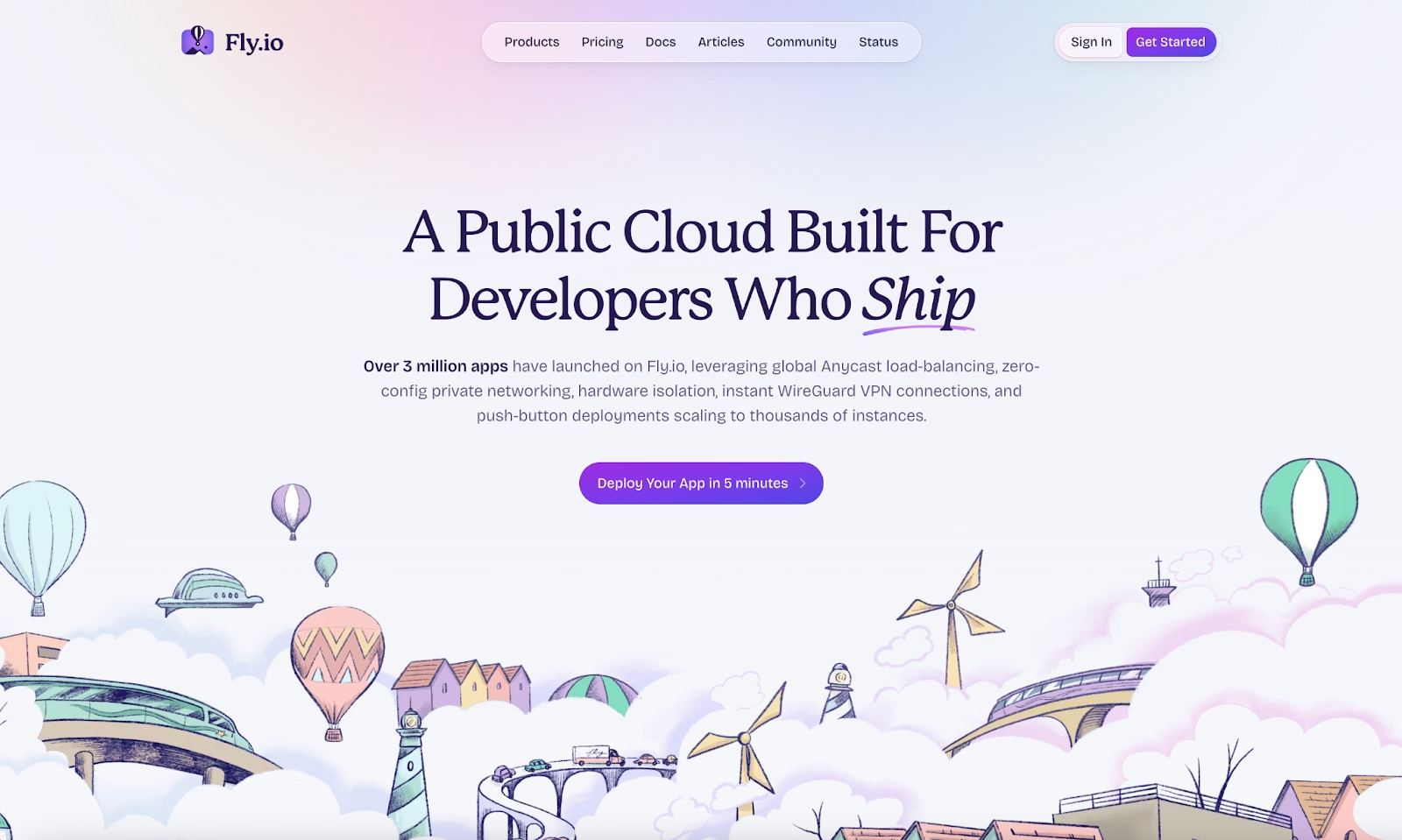
Fly.io runs applications on virtual machines at edge locations worldwide, providing excellent performance for global audiences.
Key Features: Global deployment across 30+ regions, anycast networking, persistent volumes, built-in Postgres with global replication.
Pricing: Free: 3 shared VMs, usage-based: $0.0000016 per second per 256MB RAM.
Best For: Applications serving global audiences, real-time applications requiring low latency.
AWS Amplify - Best for Enterprise Scale
AWS Amplify leverages Amazon's infrastructure for enterprise-grade applications requiring massive scale.
Key Features: Deep AWS service integration, global CDN with 450+ edge locations, built-in authentication, automated CI/CD pipelines.
Pricing: Free tier: 12 months, pay-as-you-go: $0.01 per build minute.
Best For: Enterprise applications, teams using AWS ecosystem, projects requiring compliance.
Cloudflare Pages - Best for Global Performance
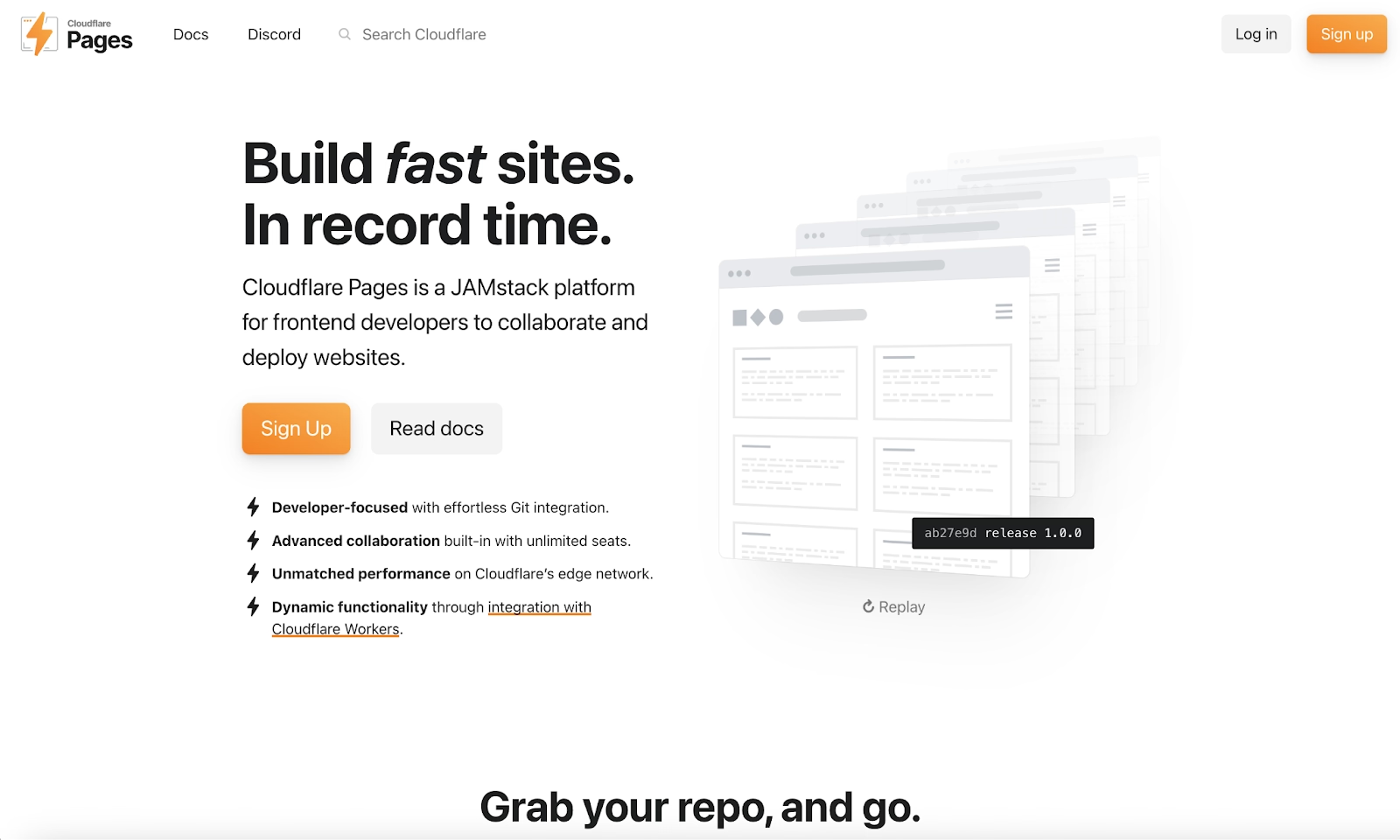
Cloudflare Pages leverages Cloudflare's global network for exceptional performance and security.
Key Features: Global CDN with 300+ edge locations, unlimited bandwidth on free tier, built-in DDoS protection, edge functions.
Pricing: Free: Unlimited static requests, Pro: $20/month.
Best For: High-traffic applications, performance-critical deployments, security-conscious projects.
DigitalOcean App Platform - Best for Predictable Costs
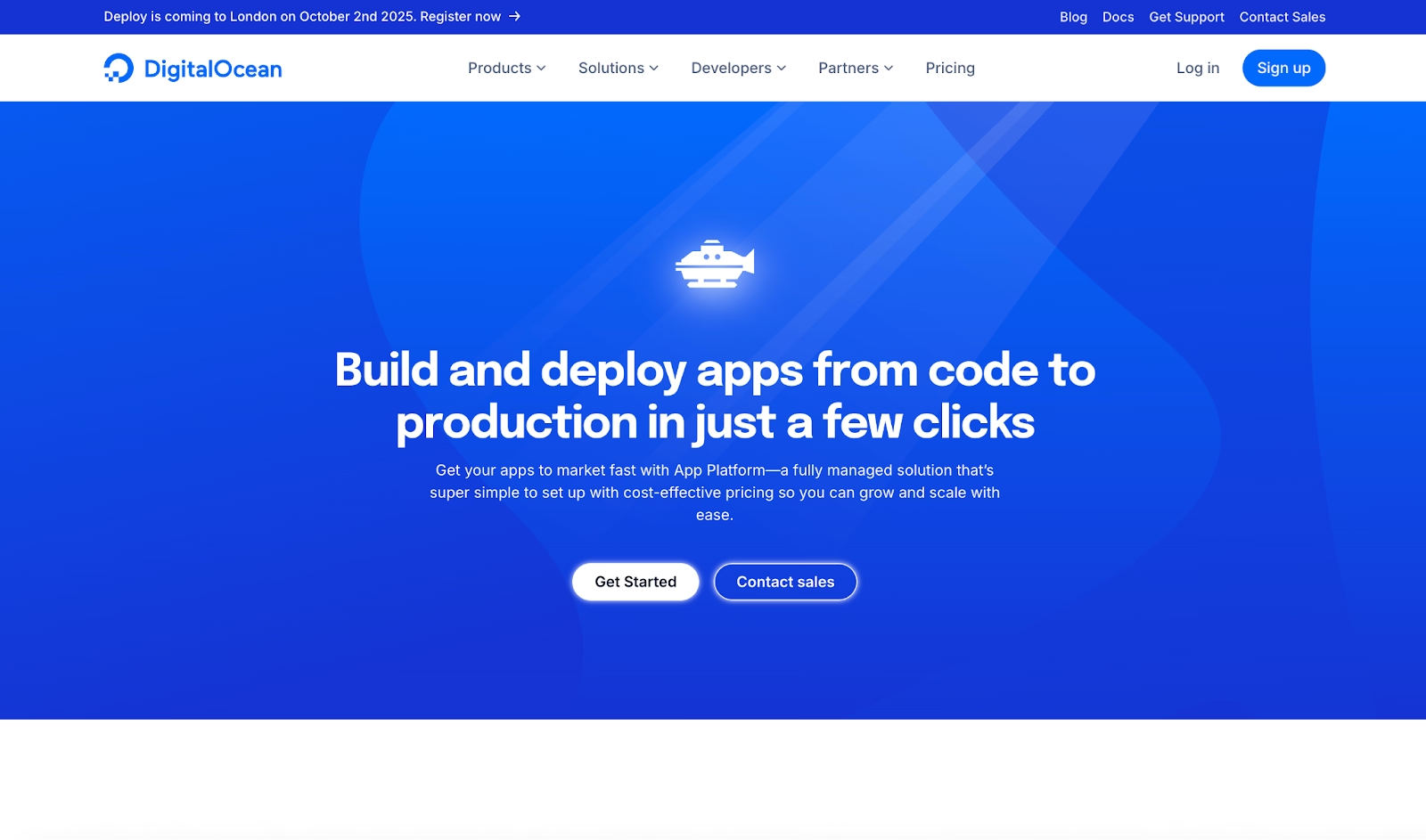
DigitalOcean App Platform offers straightforward pricing and balanced features for professional applications.
Key Features: Automated Git deployments, managed databases, integrated monitoring, custom domains with SSL.
Pricing: Free: 3 static sites, Basic: $5/month, Professional: $12/month.
Best For: Startups, teams wanting predictable pricing, professional applications.
AI-Powered Development Platform
Replit - Best End-to-End AI Development Platform with Hosting

Replit combines AI-powered development with integrated cloud hosting, offering a complete solution from code creation to production deployment.
Hosting Capabilities: One-click deployment, autoscaling infrastructure on Google Cloud Platform, custom domains with SSL, multi-region deployments, cron jobs and multiple deployment types (Autoscale, Reserved VM, Static).
Development Features: Agent 3 AI builds entire applications from natural language, browser-based IDE with real-time collaboration, integrated databases and version control.
Pricing: Free tier, Core: $25/month (includes hosting credits), Teams: $40/user/month.
Best For: Teams wanting an all-in-one solution combining AI development assistance with professional hosting, rapid prototyping.
Additional Hosting Options
Firebase Hosting: Excellent for mobile app backends and real-time features with 10GB free hosting.
Heroku: Traditional PaaS with extensive add-on marketplace, Eco: $5/month for 1,000 shared hours.
GitHub Pages: Free static hosting for public repositories with custom domains support.
Surge.sh: CLI-focused deployment for static sites with free .surge.sh subdomain.
Free Alternatives to Vercel
For developers seeking cost-effective solutions without commercial restrictions:
• Netlify: 100GB bandwidth monthly, commercial use allowed • Cloudflare Pages: Unlimited requests and bandwidth
• GitHub Pages: Free for public repositories • Firebase Hosting: 10GB hosting, 360MB daily transfer
Self-Hosting Solutions
For complete infrastructure control:
Coolify: Open-source Docker-based platform with Git auto-deployments and SSL automation.
Stormkit: Self-hostable platform with deployment previews and Next.js support.
Quick Decision Guide
| Use Case | Top Recommendation | Why It's Best | Pricing |
|---|---|---|---|
| Autonomous AI dev & hosting | Replit | Full-stack AI Agent builds and hosts apps | $25/month |
| Free commercial use | Netlify | 100GB bandwidth, no restrictions | Free tier available |
| Database-heavy apps | Railway | Excellent PostgreSQL support, transparent costs | $5/month |
| Global performance | Cloudflare Pages | 300+ edge locations, unlimited bandwidth | Free tier |
| Enterprise scale | AWS Amplify | Enterprise security, massive scalability | Pay-as-you-go |
| Edge deployment | Fly.io | Global VM deployment with low latency | Usage-based |
| Traditional web apps | Render | Modern Heroku alternative, better pricing | $7/month |
| Predictable costs | DigitalOcean | Straightforward monthly fees | $5/month |
Best Vercel Alternatives for Next.js
Next.js developers have several excellent options: Netlify provides seamless Next.js deployment with SSG and serverless functions, AWS Amplify offers enterprise-grade hosting with full AWS integration, Railway enables simple deployment with database integration, and Render supports full-stack Next.js applications with managed services.
Migrating from Vercel
When you're ready to make your move, here's what you do:
Step 1: Evaluate current usage and Vercel pain points.
Step 2: Test top alternatives using free tiers.
Step 3: Consider long-term scaling needs and budget.
Step 4: Plan phased migration starting with non-critical projects.
Conclusion
As you can see, plenty of these options either exceed Vercel's capabilities, deliver better value or both. Whether you want hosting plus AI-powered development with Replit, generous free tiers with Netlify, global edge deployment with Fly.io or enterprise infrastructure with AWS Amplify, modern hosting platforms deliver superior solutions for today's development needs. Choose a platform from our guide above and begin your migration journey toward better hosting, improved developer experience and more predictable costs.
Our agent can migrate your project from Vercel to Replit without you sweating or coding a line. Want production-grade features unlocked in ~3 minutes?
Create & deploy websites, automations, internal tools, data pipelines and more in any programming language without setup, downloads or extra tools. All in a single cloud workspace with AI built in.




%2520in%2520Python.png)